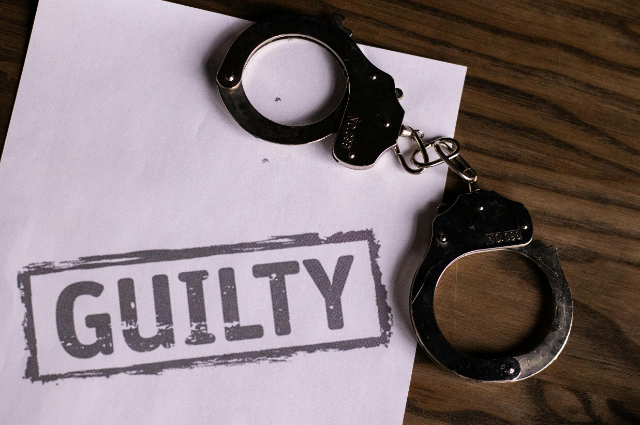
The Delhi High Court upheld the arrest of Chief Minister Arvind Kejriwal in connection with a money laundering case linked to the alleged excise scam. The court noted that the Enforcement Directorate (ED) was compelled to act due to Kejriwal's repeated non-compliance with summonses and refusal to cooperate with the investigation.
Additionally, the court cited the ED's assertion that Kejriwal had conspired and actively participated in the use and concealment of proceeds of crime. As a result, Kejriwal's petition against his arrest was dismissed.
He is expected to remain in Tihar jail until April 15th.
TIMELINE OF CONTENTION:
- In November 2021, the Delhi government, headed by Arvind Kejriwal, implemented a groundbreaking excise policy aimed at reshaping the landscape of alcohol distribution and sale within the city. This new policy marked a significant departure from traditional approaches, promising to introduce innovative measures to enhance efficiency and accessibility while also addressing concerns regarding revenue generation and public health.
How will this revamped excise policy impact the dynamics of alcohol consumption and related socio-economic factors in Delhi?
- In July 2022, Lieutenant Governor V K Saxena made a significant move by recommending a Central Bureau of Investigation (CBI) probe into suspected irregularities surrounding the formulation and execution of the Delhi excise policy. This decision came amidst growing concerns over potential malpractices within the administration of the policy, raising questions about its transparency and integrity.
Could this investigation shed light on systemic issues within the excise policy framework, or will it merely scratch the surface of deeper-rooted problems?
- In August 2022, the Central Bureau of Investigation (CBI) and the Enforcement Directorate (ED) initiated investigations into suspected irregularities. These investigations signaled a significant development in the political landscape, drawing attention to potential misconduct or corruption.
- In the subsequent month of September 2022, the Delhi government made headlines by scrapping the excise policy, a move previously spearheaded by the then excise minister, Manish Sisodia. This decision hinted at a broader political shift and raised questions about the motives behind such policy changes.
- The situation escalated dramatically in February 2023 when Manish Sisodia, Delhi's former deputy chief minister, was arrested by the CBI, with the ED following suit in March of the same year. Sisodia found himself labeled as a "key conspirator" in the case, as detailed in the chargesheet filed by the ED. These events not only brought intense scrutiny to Sisodia but also cast shadows on the political dynamics within Delhi.
What deeper truths lie beneath the surface, and how will these developments shape the future of Delhi's political arena?
- In October 2023, the Enforcement Directorate (ED) made a significant move by arresting AAP leader Sanjay Singh, followed by the issuance of the first summons to Arvind Kejriwal, the party's convenor, in a money laundering case, scheduled for November 2.
- Subsequently, in December 2023, the ED escalated its actions by issuing two additional summonses to Kejriwal, setting dates for questioning on December 21 and January 3.
- As the calendar turned to January 2024, two more summonses were dispatched to Kejriwal by the ED, slated for appearances on January 18 and February 2.
- By February 2024, the ED had filed a formal complaint against Kejriwal for allegedly skipping the summonses, prompting a response from the magisterial court, which issued summons to Kejriwal based on the complaint.Further intensifying the legal proceedings, the ED issued summonses for Kejriwal's appearances on February 19, February 26, and March 4, all in the year 2024.
- The culmination of these events occurred on March 7, 2024, when the magisterial court, responding to a fresh complaint from the ED against Kejriwal for evading summonses, issued yet another summons.
Will these developments impact Kejriwal's political career and the future trajectory of the Aam Aadmi Party?
- On March 16, 2024, a magisterial court took the surprising step of granting bail to Kejriwal, who had faced complaints from the Enforcement Directorate (ED) for allegedly skipping summons. However, this respite was short-lived.
Just five days later, the High Court dealt a blow to Kejriwal's hopes for protection from arrest, denying his petition challenging the summonses issued by the ED. Swiftly thereafter, Kejriwal found himself in the custody of the ED, arrested on the very charges he had sought to contest. On March 23, 2024, Kejriwal mounted another legal challenge, this time taking his case to the High Court to contest his arrest and the subsequent remand in the agency's custody.
What underlying complexities and motives are at play in this high-profile case, and how might its resolution shape the future of both Arvind Kejriwal and the broader political landscape in India?
- On April 9, 2024, the High Court dismissed a petition filed by Arvind Kejriwal, the Chief Minister of Delhi, challenging his arrest by the Enforcement Directorate (ED) in connection with charges mentioned in the ED chargesheet. The dismissal marks a significant development in the ongoing legal proceedings surrounding Kejriwal and the alleged financial misconduct.
What implications will this decision have on the political landscape and the fight against corruption in India?
ISSUING ORDER OR GAINING PUBLIC SUPPORT?
Delhi Chief Minister Arvind Kejriwal, despite being in custody of the Enforcement Directorate (ED) in connection with the Delhi Liquor Policy case, has continued to issue orders for the governance of the state.
This underscores his commitment to serving the people of Delhi even in challenging circumstances. His recent order, directed towards the health department, emphasizes his concern for the welfare of the citizens, particularly regarding healthcare accessibility. It's noteworthy that this is the second order he has issued from jail, following one concerning the Water Department earlier.
Kejriwal's stance of not resigning from his position as Chief Minister and conducting his duties from ED custody has sparked discussions on the intersection of governance and legal proceedings. The AAP has planned protests in response to his arrest, alleging political motives behind the move.
The allegations against Kejriwal and AAP ministers are serious, accusing them of accepting substantial bribes from liquor contractors and misusing funds for electoral purposes. However, AAP vehemently denies these charges, claiming them to be fabricated.
With prominent AAP leaders like Manish Sisodia and Sanjay Singh also in ED custody over the same case, the political landscape in Delhi is undergoing significant turbulence.
What will be the ramifications of this case on the future of AAP and the political dynamics of Delhi?
INTERNATIONAL INTEREST OVER THE CASE
India has expressed strong objections to remarks made by a US spokesperson regarding the arrest of Delhi Chief Minister Arvind Kejriwal in the Delhi liquor policy case.
The Ministry of External Affairs summoned the US Acting Deputy Chief of Mission for a diplomatic meeting, emphasizing the importance of respecting sovereignty and internal affairs of other nations, especially among fellow democracies. India highlighted its independent judiciary and condemned any casting of aspersions on its legal processes as unwarranted.
Kejriwal's arrest, amid allegations of money laundering and corruption, has drawn international attention, particularly due to its timing just before the country's general elections.

- Germany's Foreign Ministry also commented on the arrest, expressing expectations of adherence to democratic principles and judicial independence. In response, India summoned the German Embassy's Deputy Chief of Mission to convey strong protest, denouncing such remarks as interference in its judicial process and undermining the judiciary's independence.
How might such external commentary impact the perception of India's legal system and its handling of high-profile cases?
Why the democracy is being questioned by nations that have harmed their own democracy significantly? Does the case have ties internationally?
Every Person in this Country is suffering because of bad Governance - Arvind-Kejriwal
(Is he the example of a bad governance or the opposite?)
. . .
References:
- https://indianexpress.com
- https://news.abplive.com
- https://www.ndtv.com
- https://www.indiatoday.in
- https://www.livelaw.in
- https://www.news18.com

